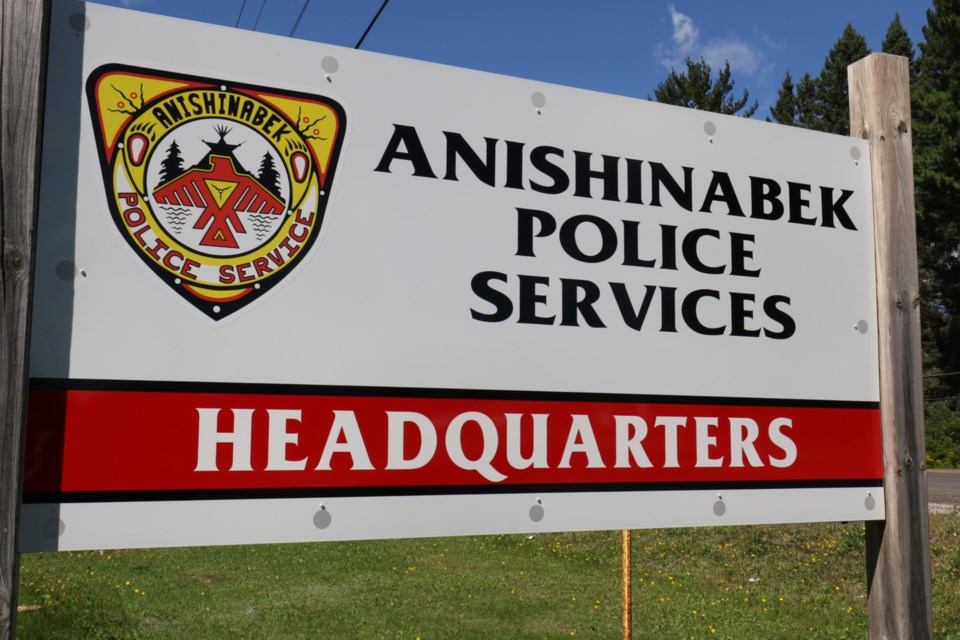Lawyer for three First Nations police services says 12-month court-ordered funding extension will force Ottawa to fix ‘mess’ of discriminatory Indigenous policing agreements

NationTalk: SooToday.com: A lawyer who successfully fought to temporarily extend funding for three First Nations police services — after a lack of funding threatened to shut them down — says the win in Federal Court is just the beginning of Indigenous communities pushing back against Ottawa imposing inequitable policing agreements upon them.
The Anishinabek Police Service (APS), UCCM Anishnaabe Police Service and Treaty Three Police Service — which cover 45 First Nations across Ontario, with a combined population of around 30,000 people — will see their funding from Canada extended for another 12 months after an impasse in negotiations with Public Safety Canada led to all three police services going without the federal portion of their funding since the end of March.
Julian Falconer, who led the legal battle of behalf of the First Nations police services and the Indigenous Police Chiefs of Ontario (IPCO), says certain terms and conditions contained within the First Nations and Inuit Policing Program (FNIPP) prohibit First Nations police services from establishing specialized police units or fighting Ottawa in court over its “take-it-or-leave-it” approach to bargaining with them.
“I can say unequivocally that this is a game changer for vindicating concerns First Nations police leaders have had for a very long time. It utterly exposes the inequities and frankly, half truths that Public Safety Canada has been putting out there,” said Falconer, of the court decision handed down late last week. “The court is crystal clear that Public Safety Canada’s so-called constraints that it operates under are of their own making, and the discriminatory rules that my clients labour under are a product of very deliberate decision making by the Public Safety Minister and his bureaucrats.
“This is a vindication for police services that said enough is enough, we are no longer signing on to your discriminatory program — and if we have to turn off the lights on our services to make a point that our integrity will no longer be undercut, we’ll do it.”
Terms and conditions outlined in Section 6 of the FNIPP effectively prohibit First Nations police services to have police units like domestic assault, major crime, homicide or canine units — in other words, resources that would be considered standard policing in mainstream Canadian society.
Falconer says First Nations police services are also prohibited from consulting with legal representation about multimillion-dollar agreements with Ottawa, especially when it comes to interpreting or negotiating them.
The lawyer calls the restrictions a “gratuitous form of discrimination.”
“Public Safety Canada clings to these prohibitions — clings to them even though a judge recognizes there’s no rationale for them. There’s no explanation,” said Falconer. “They were called repeatedly to explain and justify why these prohibitions would exist — and as the court recognized, there was no rationale offered.”
IPCO originally drafted the legal motion in early May, seeking interim relief under Section 5 of the Canadian Human Rights Act, alleging discrimination against the three police services. The recent court decision, Falconer says, shows that Public Safety Canada’s “ways of doing business are no longer acceptable.”
“The message has been sent that Canada has a duty to negotiate in good faith and be open to modification of the terms and conditions that govern the policing program, so you can expect substantive negotiations,” he said. “You can also expect that there will be, hopefully, a serious collaboration on systemic change that Canada, in coming to the negotiation table in the next 12 months, will be expected to explain how they intend to change this mess.”
Falconer says systemic change in Indigenous policing has been a “long time coming,” and going forward Canada will have no other choice than to “adopt a different position or face more court orders.”
“It took tremendous leadership on the part of APS, Treaty 3 Police Service and UCCM to have stood up and given new meaning to the words ‘just say no.’ They wouldn’t sign,” he said. “They would not sign onto another discriminatory set of agreements.”
James Hopkin